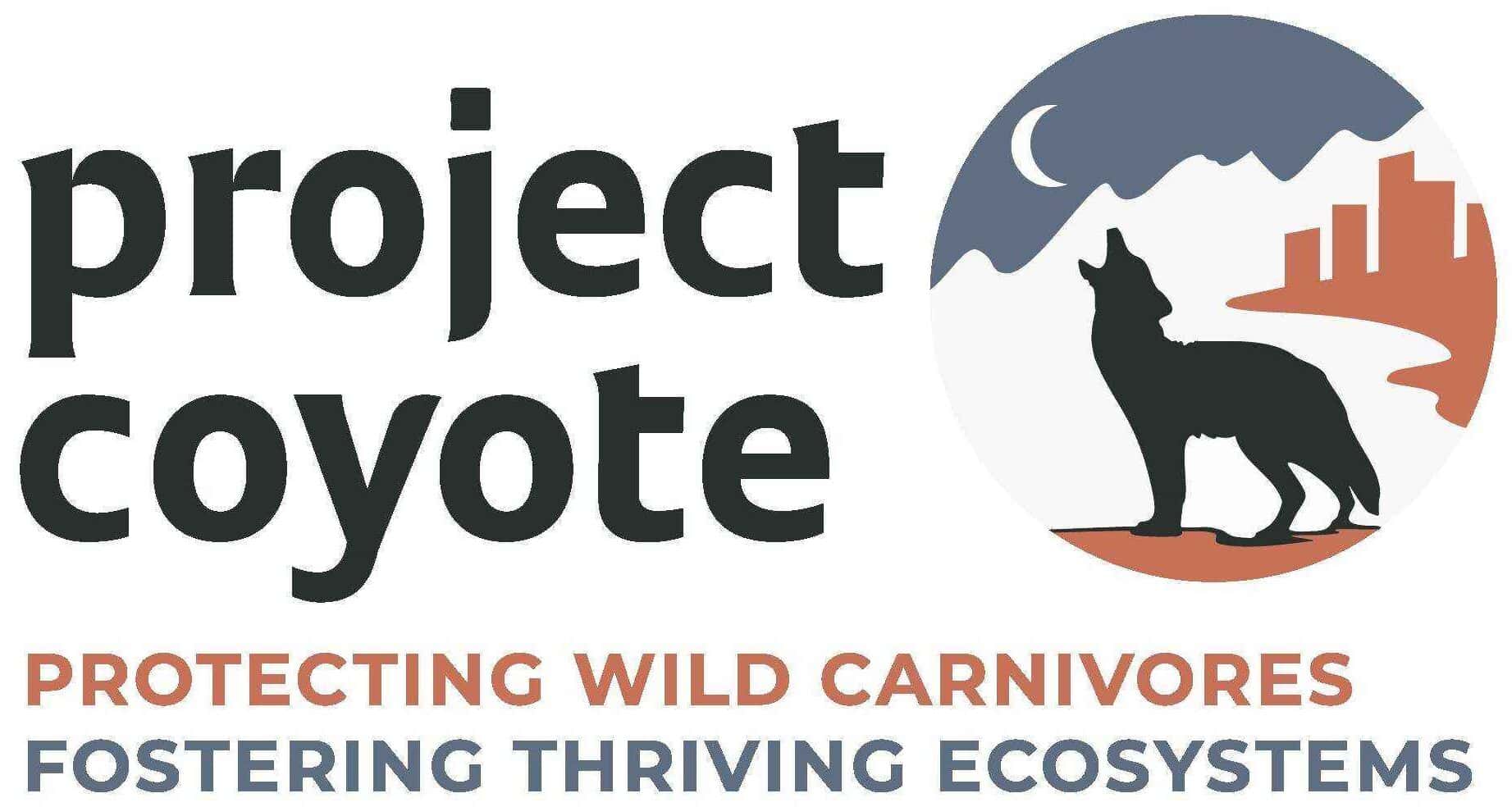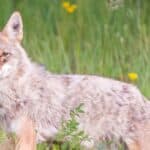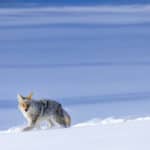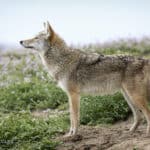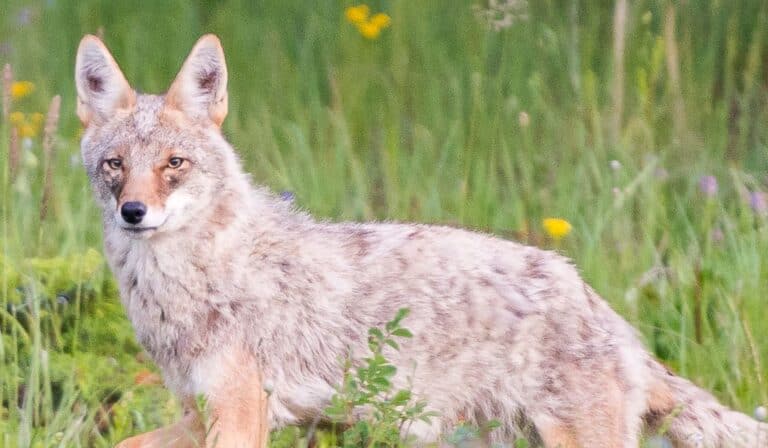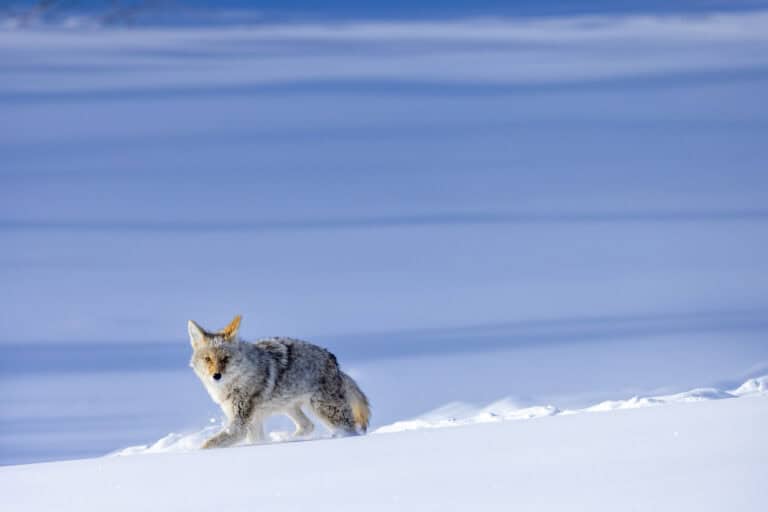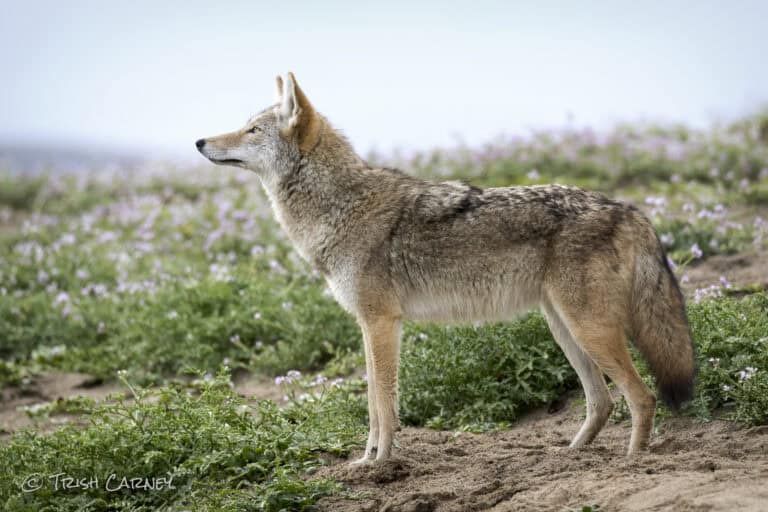FOR IMMEDIATE RELEASE: November 11, 2009
Indiana Natural Resources Commission to Consider Ban on Practice Nov. 17th
Indianapolis, IN — More than 40 scientists, veterinarians, and attorneys and a coalition of wildlife advocacy organizations including Project Coyote, Indiana Coyote Rescue (ICR), and the Animal Welfare Institute (AWI) have submitted a formal letter and data urging the Indiana Natural Resources Commission to support two formal petitions to prohibit the taking, killing and harassment of coyotes and red foxes for “penning” purposes and for use as live bait in the wild.
Current loopholes in Indiana’s wildlife regulations allow the capture and killing of coyotes and red foxes by dogs in the wild. Moreover, no rule or law exists prohibiting the trapping and selling of coyotes and foxes in state or across state lines to “penning” facilities where these wild canines are then used to “train” hunting dogs in “running pens.” Operators of the running pens often charge a fee for individuals to “train” their hunting dogs on the captive coyotes and foxes. Penned wild canids are often killed by being torn apart by the dog pack.
Signatories to the letter, including internationally prominent scientists Dr. Michael Soulé, Dr. Marc Bekoff, and Dr. Michael W. Fox state, “As scientists, veterinarians, and attorneys, we believe this practice — commonly referred to as ‘penning’ — violates the concept of ‘fair chase’ hunting and runs counter to fundamental concepts of wildlife management. We concur with the Indiana Department of Natural Resources that there are serious ecological, ethical, disease and health related issues associated with penning. We strongly support a ban on this practice….”
“As a society, we have decided that dog and cock fighting are ethically indefensible and we have banned these practices nationwide,” said Camilla Fox, Project Coyote founding director and wildlife consultant for the Animal Welfare Institute. “Ethics aside, this practice is ecologically reckless, and for that reason alone this practice should be immediately prohibited.”
On November 17th, the Indiana Natural Resources Commission will consider the formal petitions and decide whether to move forward with the petitions through the formal rulemaking process, reject them, or to send them back to the Indiana Department of Natural Resources (INDNR) for further changes. For further details on the meeting, please see: www.in.gov./nrc/2354.htm.
The Indiana Department of Natural Resources has acknowledged that there are serious issues with penning, including disease transmission concerns, but does not support a ban on the practice. However, the Midwest Association of Fish and Wildlife Agencies passed a resolution in 2008 urging the adoption of state-by-state regulations prohibiting the importation or interstate movement of foxes and coyotes for the purpose of stocking coursing pens or for release and pursuit by hounds outside of coursing pens.
“This bloodsport — known as Live Bait Dog Training — has no place in civilized society,” said CeAnn Lambert, founding director of Indiana Coyote Rescue who has led the effort to ban this practice in her home state. “It’s time to close this loophole in our regulations and ban this practice once and for all.”
###
Project Coyote
Project Coyote is a national non-profit charitable organization that fosters educated coexistence between people and coyotes and advocates on behalf of all native carnivores. For information, visit: www.ProjectCoyote.org
The Indiana Coyote Rescue
The Indiana Coyote Rescue is an Indiana based non-profit charitable organization that educates and inspires the human population to understand and learn to treasure the unique contribution the North American Coyote makes to our ecosystem and to begin the process of ending the slaughter of these animals. More information: www.coyoterescue.org
The Animal Welfare Institute
The Animal Welfare Institute is a non-profit charitable organization founded in 1951 to reduce the sum total of pain and fear inflicted on animals by humans. More information: www.awionline.org.
